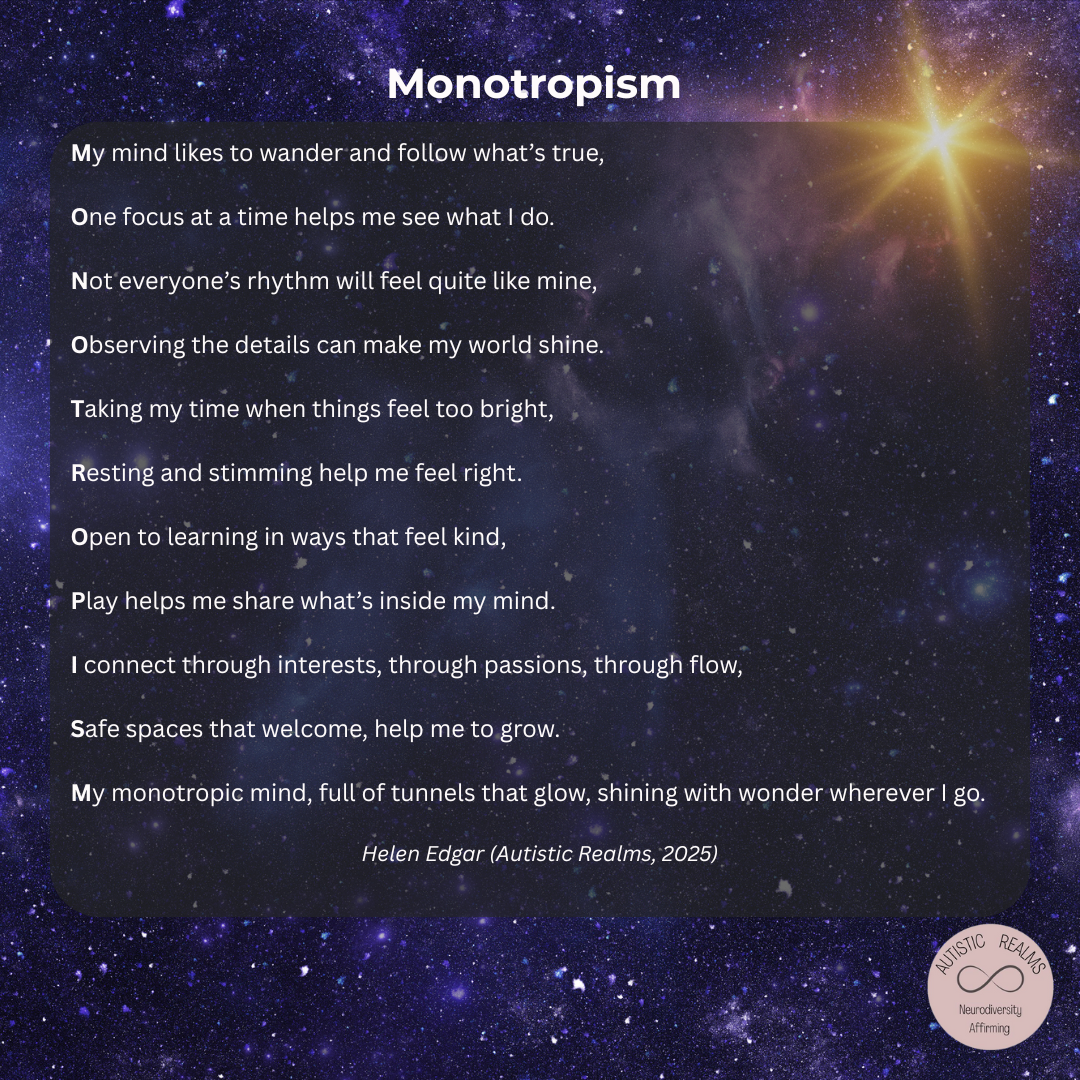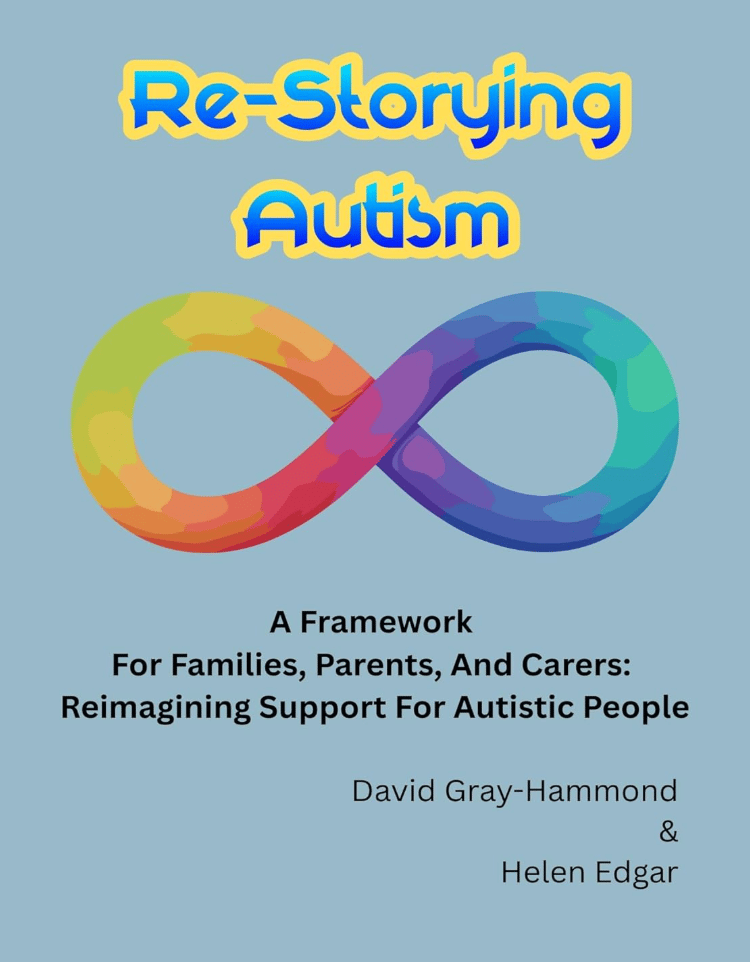I wrote this poem as a contribution to a free resource for Autistic children and young people that GROVE – Online Community for Autistic Young People are creating (November, 2025)
If you’d like to join in the project, you can find out more here.
Monotropism
My mind likes to wander and follow what’s true,
One focus at a time helps me see what I do.
Not everyone’s rhythm will feel quite like mine,
Observing the details can make my world shine.
Taking my time when things feel too bright,
Resting and stimming help me feel right.
Open to learning in ways that feel kind,
Play helps me share what’s inside my mind.
I connect through interests, through passions, through flow,
Safe spaces that welcome, help me to grow.
My monotropic mind, full of tunnels that glow, shining with wonder wherever I go.
Helen Edgar (Autistic Realms, 2025)
Some people dive really deeply into the things that catch their attention, especially if they are Autistic, ADHD, or AuDHD. They might enjoy exploring ideas, stories, games, sounds, or sensory experiences in great detail for long lengths of time. They may notice things that other people might not see, and it may mean they don’t notice or feel things that other people expect them to.
This way of thinking is called being monotropic. It means your attention tends to flow toward one thing, or just a few connected things at a time. Sometimes the things that hook us in may be really joyful and something we are passionate about; other times, we might get hooked into something not so helpful that may make us feel anxious.
Researchers Dinah Murray, Wenn Lawson, and Mike Lesser — all Autistic themselves — developed the theory of monotropism. They first wrote about it in 2005 in a piece of research called “Attention, monotropism and the diagnostic criteria for autism.” Many Autistic and ADHD people find that this theory describes the way they think, feel and connect with the world really well.
When you’re monotropic, it can be easy to stay focused for a long time, especially when something really interests and engages you. It can feel like being in a glowing tunnel, lighting up what matters most, while everything else seems to fade away. But, it can also sometimes make it much harder to switch your attention when someone asks you to stop or focus on something else, or when something else is happening around you.
Being monotropic can be a real strength. It helps you notice patterns, details, and connections that others might miss, it can allow you to become an expert in something you are interested in, whether that is making slime or astro-physics!
It can also be tiring being monotropic, especially when the world feels too fast, noisy, or full of distractions. Sudden changes or interruptions can feel very stressful or confusing because they pull you out of your flow and attention tunnel.
When this happens, it can really help to pause, rest, or stimulate or move in ways that feel good for your body, such as jumping, spinning, flapping, humming, using a fidget tool, or listening to your favourite song on repeat. These can all be ways of helping your mind and body rebalance; there is no single rule for the best way to rest or regulate, as everyone is different.
It is often really helpful to spend more time with something that REALLY interests you. It doesn’t matter if that happens to be gaming, rearranging one of your collections, painting, dancing or reading about Tudor history – whatever interests you matters because it is YOUR passion, no matter what others may think!
People who are monotropic often build strong friendships through their shared interests. Talking about or doing something you love together can help others understand and connect with you more deeply, and also you connect with them!
Having safe, calm, and welcoming spaces makes a big difference. When families, teachers, and friends understand how monotropic attention works, they can help you thrive, without pressure to rush or switch focus before you’re ready. They may be able to help plan activities and learning around your interests if that is something you want too.
Have a think about what monotropism means to you?
Feel free to share this poem with others if you think it will help, or maybe you could write your own or draw a picture?

Reflecting on the Poem
Each line of the poem ‘Monotropism’ describes something many Autistic and ADHD people may recognise.
Here are some questions you might like to think about:
- In what ways do or don’t you relate to the poem?
- When do you feel most in your flow?
- How do you know when you need rest, time or space ?
- Who or what helps you feel safer to be yourself?
- Could you write, draw or make something about being monotropic?














